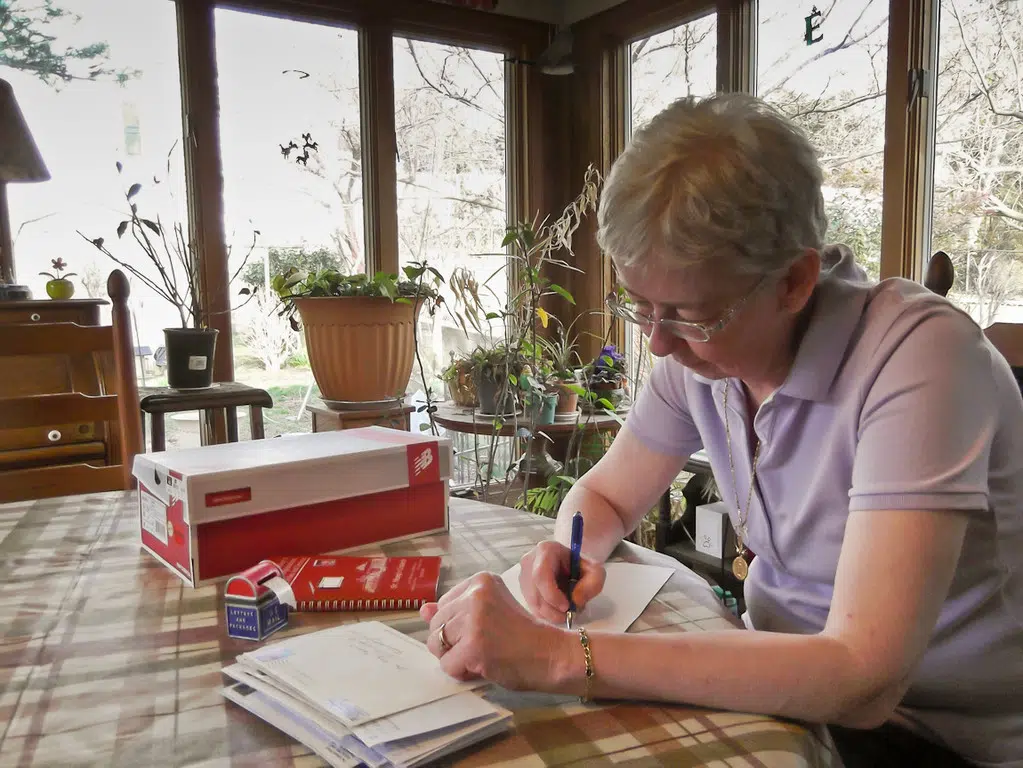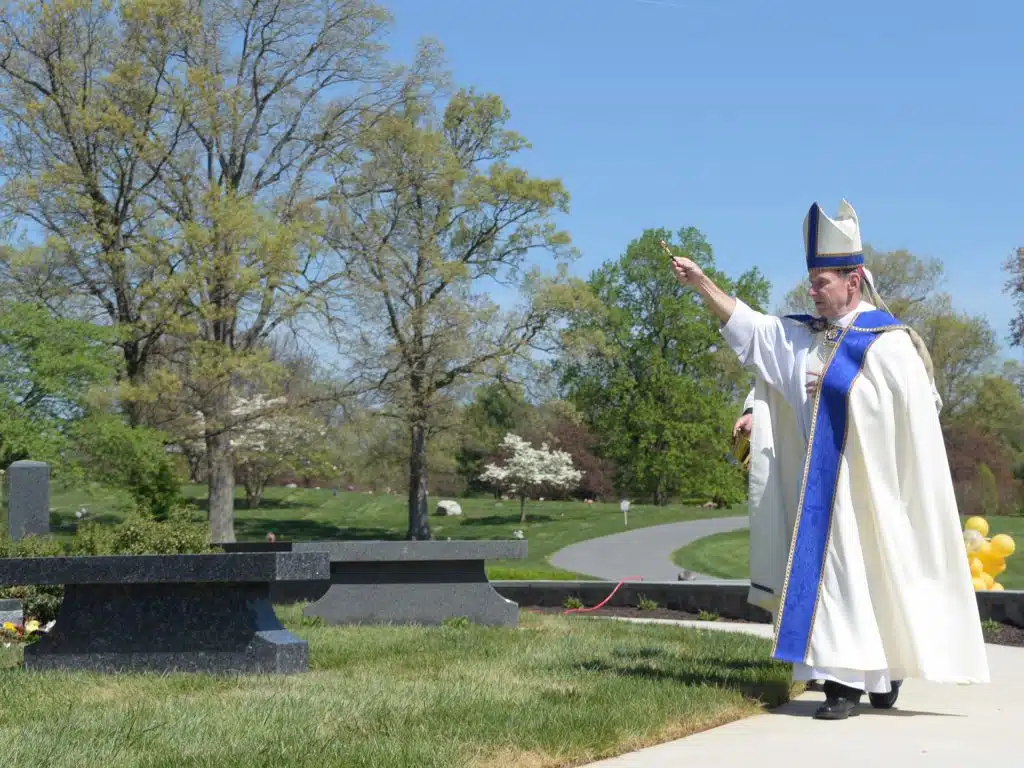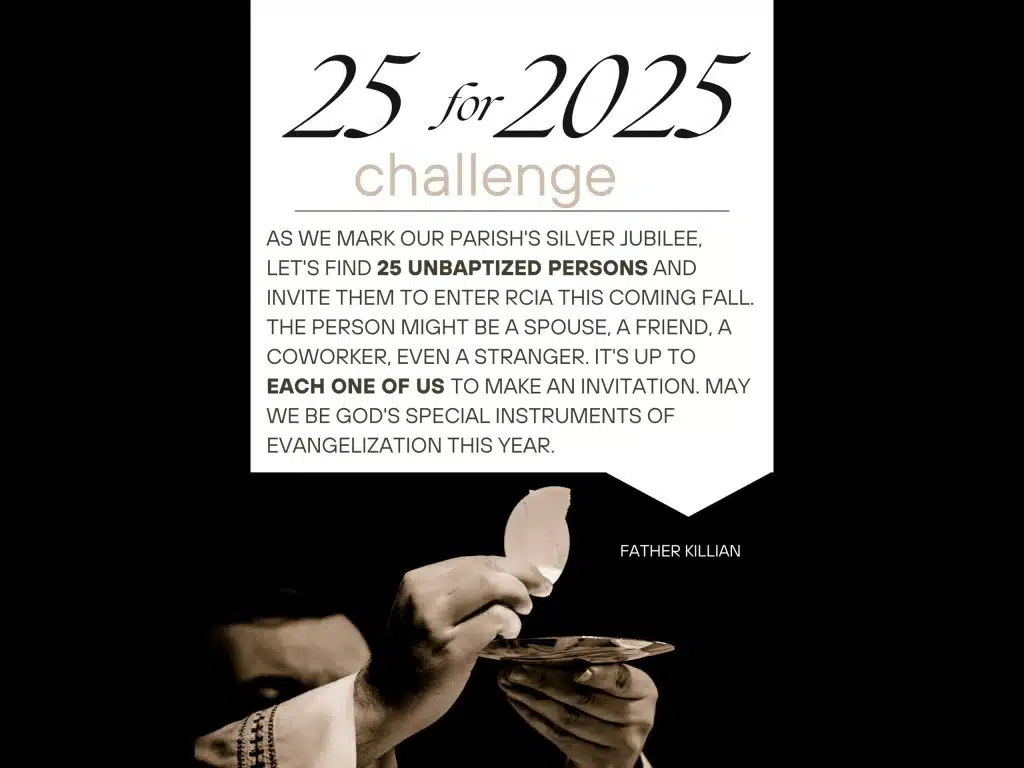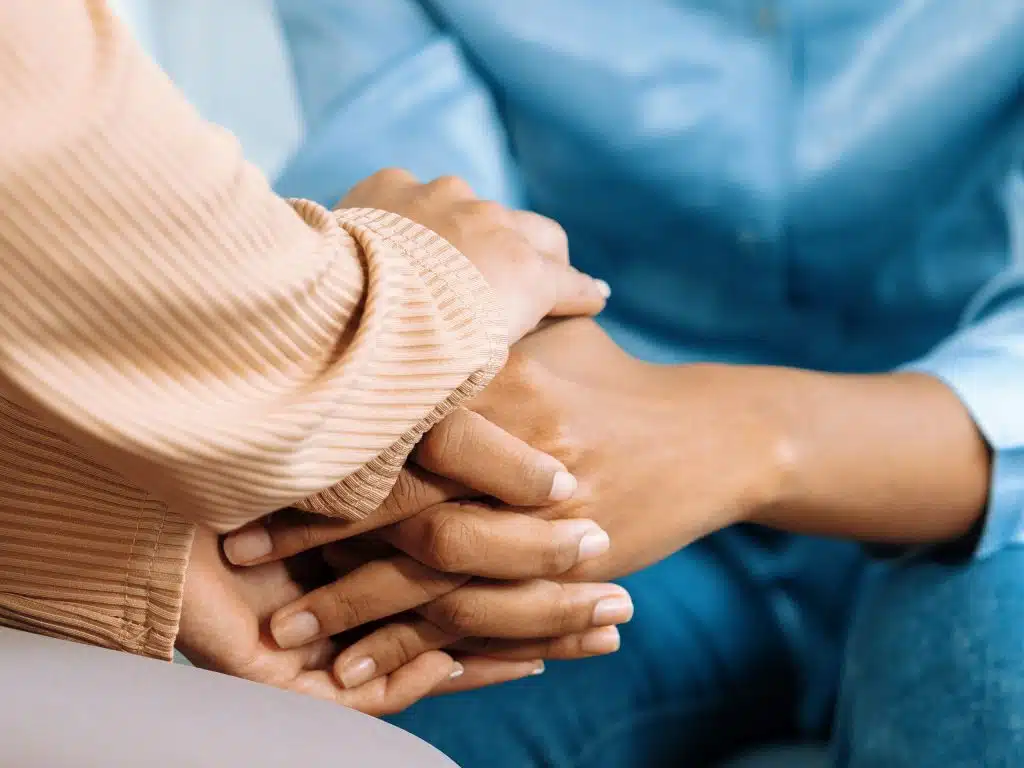Every afternoon after lunch, Mary Wehman sits down at a table
in her sunroom with a roll of stamps and an address book and
picks up a pen. For the next three hours she’ll fill pages of
cursive for some of her 51 pen pals. Living everywhere from
Alaska to Florida, Maine to Texas, the letter recipients have
diverse backgrounds. Wehman knows some of them, but many
she’s never met. All are elderly.
“The elderly are often so lonely,” said Wehman, a longtime
parishioner of St. Mary of the Immaculate Conception Church
in Fredericksburg. “This is a way for them to feel loved.”
The 60-year-old’s ambitious ministry of hand, heart and time
began eight years ago, but its roots stretch back to a letter
she received from her grandmother and an early and persistent
desire to serve the less fortunate.
Going the distance
Wehman was born in Illinois and moved to Fredericksburg with
her family when she was 12. After graduating from high
school, she spent part of the summer working at a camp in
Connecticut run by religious sisters for inner-city teenagers
from the Bronx, N.Y. She was not much older than the campers,
and it was intimidating at first. But the teens grew to love
her, and by summer’s end she told herself, “If you can do
that, you can do more.”
That impulse to do more spurred her to leave community
college a few credits shy of graduation in order to volunteer
at St. Joseph’s Indian School in South Dakota, a boarding
school for poor children from Indian reservations.
While at St. Joseph, Wehman saw a brochure about the Jesuit
Volunteer Corps and an opportunity to serve in Alaska. JVC is
an organization of lay volunteers who work with the poor,
elderly, abused and other marginalized groups.
Her family was surprised when she told them she wanted to
apply. “My dad said to me, ‘You help a lot of people, but
you’re never going to make any money,'” she recalled,
laughing.
Conquering fears in Alaska
When Wehman stepped off the airplane into the village of
Emmonak, Alaska, no one was there to greet her. “I was scared
to death,” she said.
Yet over the next few years, Wehman grew to love the majestic
beauty of Alaska, the poor Yup’ik Eskimos she worked with and
the simplicity of village life.
Emmonak, the last village before the mouth of the Yukon
River, had a population of about 500, nearly all Yup’ik.
Wehman and her JVC partner lived in a “shack-ish little
building” that once was a convent. There was no running
water, refrigerators or toilets.
Like everyone in Emmonak, she supplemented her diet by
hunting willow ptarmigan, the Alaska state bird, and small
animals. “I didn’t like to hunt, but it’s not like here where
you can just go to the store,” said Wehman, who learned to
use a shotgun and a .22-caliber rifle.
During the two-year commitment, she taught religious
education, visited the elderly and, with the help of the
local priest, started a teen center.
They made a pingpong table for the center out of plywood and
sawhorses, and Wehman’s mother helped stock it with board
games.
“The kids didn’t need much to be satisfied,” she said. “I
loved the joy they felt over simple things.”
Her time with the elderly similarly was fulfilling.
“They really appreciated those visits, and I appreciated
being around them, hearing their stories.”
Thoughts of her grandmother often came to mind while visiting
the elderly. She saw her only once a year growing up, but
Wehman cherished the many letters her grandmother had written
her. She kept nearly every letter.
Though her work with the elderly and the young was deeply
rewarding, life in Alaska could be dangerous.
The local priest once asked Wehman to join him on a
snowmobile ride to a convent several miles away. Because
she’d recently made the cold and at-times treacherous
journey, she declined.
On his ride to visit the sisters, the priest fell through a
sheet of ice. He survived, but “I would definitely have died
if I’d gone with him,” said Wehman. “It was a little
miracle.”
One of her toughest challenges as a volunteer was when her
father died suddenly. The 21-year-old found out about his
death via a shortwave radio owned by the priest. She was able
to fly home for the funeral, but it was a painful time.
Her life’s greatest heartbreak and blessings – her two sons –
came following her JVC service.
Wehman had met a Yup’ik man whom she married and made a home
with in Emmonak. Soon after the wedding, Wehman discovered he
was an alcoholic who became abusive while drinking. The
village, with all its positive attributes, had a high rate of
alcoholism.
“He was a kind person, but once we got married I saw the
other side,” she said. “It was sad and scary.”
After four years of marriage, Wehman found the strength to
leave the abuse and return to Fredericksburg. She received an
annulment and went to work raising two boys as a single
parent. Sending her children to a Catholic school was a
priority, and she lived in her mother’s basement and cleaned
houses in order to make that happen.
“It all worked out, but I’m not sure what I’d have done if
not for my dear mother,” said Wehman, who remarried about
four years ago.
Sealed with a prayer
When her mother died eight years ago, Wehman’s sadness
brought back not only memories of her mother but also of her
grandmother. “I recalled the request my grandmother made in
her final letter: ‘Don’t forget me,'” recalled Wehman.
That appeal, along with remembering her time with the Alaskan
elderly, inspired Wehman’s letter-writing efforts.
One of her first letters was to a 98-year-old World War II
veteran. She’d read a story about him in the newspaper, and
she clipped out the article and sent it to him.
He later told her it was the nicest thing anyone had done for
him.
“That put the spark into this effort,” said Wehman, who
continued to write to the man until he died.
Her 51 pen pals – she hopes to add more – include people she
reads about and a few from St. Mary of the Immaculate
Conception Church. She also writes to all of her mother’s
friends.
“I write to anyone I hear of who is lonely,” said Wehman.
She calls them “pen pals,” but she doesn’t expect, or always
receive, a response.
Many, however, have expressed how important the letters are
to them. A woman from Alaska told her, “You’ll never know how
much you mean to me.”
Sometimes she includes a holy card or newspaper clipping.
Letters can be up to three pages; some are just a card with a
note.
“I’ll send this woman who had a stroke (and cannot write) a
funny card rather than a long letter, because I don’t want
her to feel badly she can’t answer me,” said Wehman. “I just
want her to smile.”
Letter topics frequently are inspired by the seasons she
observes changing through her sunroom’s floor-to-ceiling
windows. “I’ll write, for example, about the birds singing a
happy song of spring,” she said.
The anticipation seniors experience waiting for the letters
often is more important than the content, said Wehman, who
prays for all her pen pals.
Wehman hopes her letter writing will inspire others to spend
more time with grandparents or other elderly people in their
lives – to compose a letter, make a phone call or just be
present with them.
“The elderly have so much to teach us if we just take the
time to listen,” she said.
Every time she mails a letter she feels grateful knowing that
its modest contents likely will bring joy. “I want them to
know they are loved,” said Wehman.
And she wants to assure them, with prayers and pen, that they
are not forgotten.



